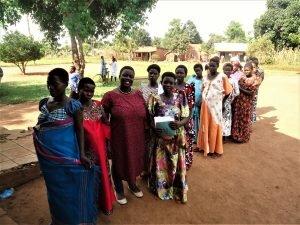Association de santé publique de Genève (UDHA) and Makerere University School of Public Health (MUSPH) in partnership with Ministry of Health (MoH) under the COMONETH (Community in which Mothers and Newborns Thrive) project currently target the mother, her unborn baby (to prevent stillbirths) and the newly born baby (to reduce neonatal deaths) in one of the hardest to reach districts of Uganda, Luuka.
Preventive services along the continuum of care are poor and pregnant women rarely get the full package. In a recent study Comic Relief funded studies (MANIFEST) we showed a higher NMR of 34/1000 live births (UDHS, 2011) in three rural districts (Kananura, 2016), we found that most women and community members had little or no knowledge of how to prevent or recognize the newborn illness. As a result, newborn care seeking was delayed. We also found that there is low knowledge about Kangaroo Mother Care (KMC) among mothers and indeed most community members and dangerous practices continue to exist around care for preterm / sick newborns. For preterm, many mothers use hot charcoal stoves, hot water jerry cans or plastic bottles filled to provide heat for it. For mothers, whereas illness recognition was easier, most sought care from many places including Traditional Birth Attendants (TBAs) and lower level health facilities. Pregnant women and their newborns face many problems, some of which cost them their lives. Most do not have access to a hospital for emergency obstetric and neonatal care, no newborn care exists in health facilities for sick newborns, and community services are non-existent.
The Partnership aims to learn how to save “high risk” mothers and newborn babies in a rural district targeting 29,072 clients reached (Pregnant women (9,956), newly delivered women (9,558), Newborns (9,558 newborns and 1,242 low birth weight and preterm babies). UDHA –MuKSPH implements a multi-faceted community-based interventions, engaging district partners and health facility strengthening to provide quality care. Through embedded Monitoring, Learning and Evaluation, we will disseminate experiences to inform national policy.
Project design and implementation takes on a community owned but facility-linked district-wide intervention and expected to promote high coverage with preventive care and improves quality of clinical care equitably leading to impact on maternal, perinatal and neonatal mortality in rural Uganda.
 (UDHA) Association de santé publique de Genève
(UDHA) Association de santé publique de Genève
